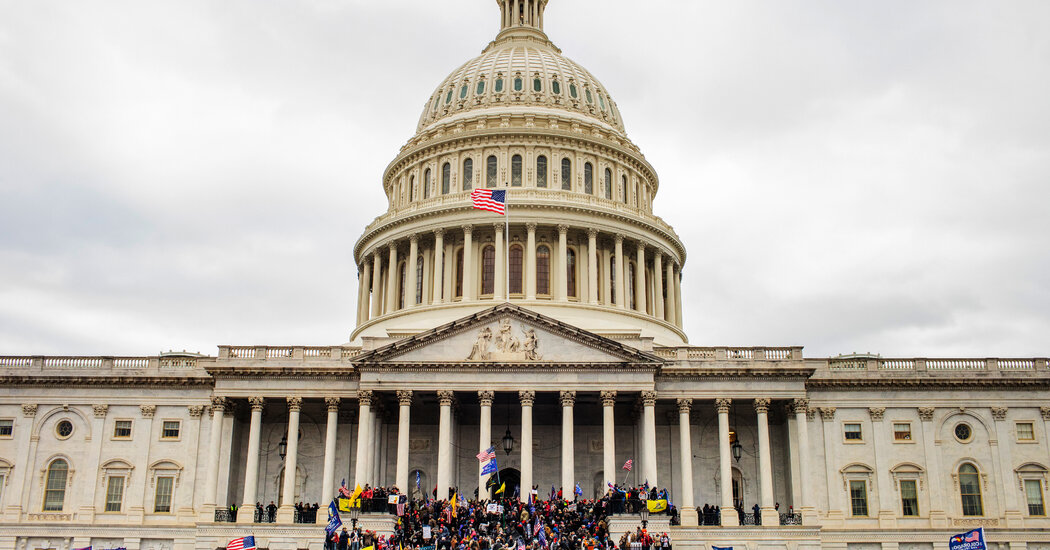Col. Earl Matthews, the top lawyer for the D.C. National Guard during the assault on the Capitol, said in a whistle-blower complaint that he was punished for contradicting the testimony of two top generals.
A former top lawyer for the D.C. National Guard has accused Army officials of retaliating against him for asserting to Congress that two top Army officers lied about why deployment of the Guard was delayed during the Jan. 6, 2021, attack on the Capitol, according to a complaint filed with the Defense Department and obtained by The New York Times.
Col. Earl Matthews, who previously served in the Trump administration and was the top lawyer for the D.C. Guard during the Jan. 6 assault, said in the complaint that he was retaliated against after he accused two generals in a report to Congress of making false statements about the delayed deployment, an issue that has produced multiple and often conflicting accounts.
“It’s textbook whistle-blower retaliation. I wrote that memo because I saw real wrongdoing,” Colonel Matthews said in his first interview since the incident. “I love the United States Army. To me, this is about Army values.”
Those insurrectionists at every level of the military and government need to go, but especially in the damned military, and especially f’n Generals.
The 14th amendment requires them to be discharged, doesn’t it? Oh, right, we’re still pretending that one doesn’t count.
This is the best summary I could come up with:
Col. Earl Matthews, who previously served in the Trump administration and was the top lawyer for the D.C. Guard during the Jan. 6 assault, said in the complaint that he was retaliated against after he accused two generals in a report to Congress of making false statements about the delayed deployment, an issue that has produced multiple and often conflicting accounts.
A copy of the 37-page whistle-blower reprisal complaint was filed with the Pentagon’s inspector general in October, two months before the third anniversary of the attack on Congress by a pro-Trump mob seeking to halt certification of President Biden’s 2020 election victory.
At the center of this particular dispute is a still-simmering feud inside the military over who is to blame for the more than four-hour delay in deploying the National Guard as the rioters battled their way into the Capitol, assaulting dozens of police officers along the way and endangering members of Congress, their staffs and others working in the building.
In particular, Colonel Matthews said he was infuriated by a report he said was overseen by Lt. Gen. Walter E. Piatt of the Army that he described as a “misleading, factually flawed and revisionist recitation of events” that he viewed as shifting the blame for the delay onto D.C. National Guard leadership.
It said that in addition to costing Colonel Matthews money in the form of forgone salary and pension, the alleged retaliation imposed “grievous reputational harm, significant personal embarrassment and public humiliation.”
Colonel Matthews’s experience on Jan. 6 is largely consistent with the accounts of other District of Columbia and law enforcement officials involved in the response that day, including one provided by the former Capitol Police chief, Steven A. Sund, who said the Pentagon was more concerned about “optics” than quickly deploying the National Guard.
The original article contains 1,211 words, the summary contains 300 words. Saved 75%. I’m a bot and I’m open source!
In the interview, Colonel Matthews said he did not believe General Piatt ordered or knew about the retaliation and blamed lower-ranking officials at the Army War College. One of those officials acknowledged that Colonel Matthews’s “widely publicized attacks on Army senior leaders in relation to the Jan. 6 insurrection” factored into his belief that Colonel Matthews should be removed from his position, according to the complaint.
That is a direct admission of retaliation.



